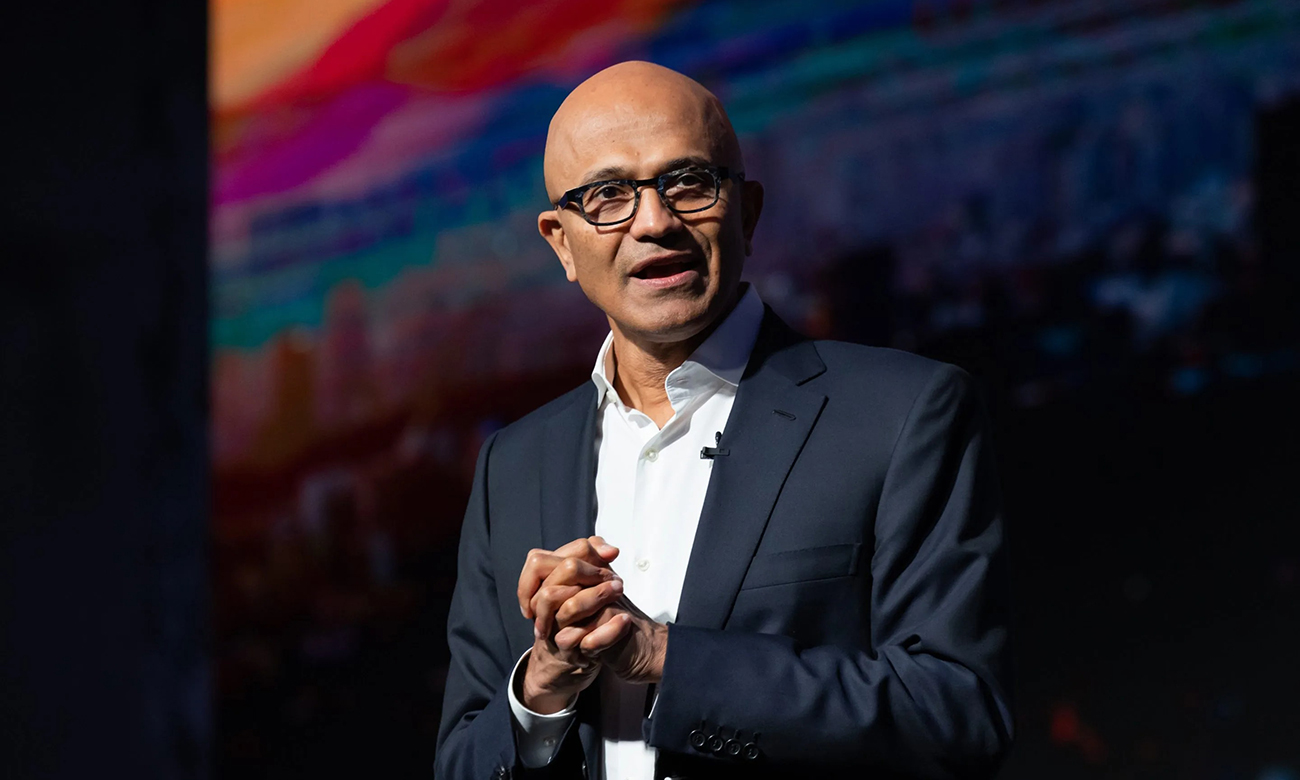微软:人工智能可以解决三大问题

虽然有证据表明,老板们已经计划用人工智能取代员工,但微软依旧认为,人工智能将使工作者变得更好,而不是将其淘汰,并且在商界早已出现了人工智能与工作者的联盟。
最近几个月,ChatGPT等人工智能系统已经证明它们能够处理许多任务,因此被计算机抢走工作变成了一个实实在在的问题。涉及重复性任务或行政支持的工作,被取代的风险最高,但微软在周二发布的一份调查报告显示,只有49%的工作者担心因为人工智能失业。
这个比例看起来很高,但有70%的工作者表示,他们准备尽可能将所有琐碎的工作交给人工智能。
微软为该报告调查了31个国家在不同行业和办公环境下的31,000名工作者。今年1月,微软宣布向ChatGPT的开发者OpenAI投资100亿美元,在人工智能领域引起轩然大波,该科技巨头将在生成式人工智能市场与谷歌(Google)针锋相对展开竞争。3月,微软发布人工智能驱动的新版搜索引擎必应,并发布了一系列优化办公软件的人工智能工具。
微软CEO萨蒂亚·纳德拉形容人工智能是“好的破坏者”,他表示人工智能技术可以创造更多就业岗位,并提高就业满意度。公司的最新报告似乎证明了纳德拉的观点。报告中列举了人工智能重塑业务的方式,以及公司领导者们应该做好准备的三条见解:关注工作日的非生产性部分,帮助员工摆脱极端倦怠状态,要求员工掌握借助人工智能辅助工作的更多知识。
纳德拉在一份声明中表示:“新一代人工智能将让工作变得不再单调乏味,并释放人们的创造力。人工智能驱动的工具有很大机会帮助减少数字债务,培养人工智能能力,并让员工变得更强大。”
微软的人工智能助手梦
几个月来,微软一直将人工智能宣传为“智能副驾”,可以协助员工工作,而且其最新报告显示,微软确实在探索如何将人工智能整合成为一款办公助手。
报告的第一个重要结论是,人工智能可以帮助公司减少“数字债务”,即影响公司生产率的日积月累的信息、电子邮件和会议邀请函等。约三分之二调查受访者表示,他们在工作中很难找到不受打扰的时间和精力完成最重要的工作,并且更有可能因此影响其创造力。
在远程办公时期,会议和其他行政任务日益增多,一些公司最近禁用了日历邀请,因为它占用了员工太多时间,例如Shopify在1月取消了76,500小时的公司固定活动。微软认为,人工智能可以将每一次会议和错过的信息转变成“数字制品”,员工可以随时重复查看,并且可以在人工智能的辅助下确定最重要的部分,因此可提高员工的工作效率。
根据微软的第二个重要研究结果,减少繁琐枯燥的工作量还可以避免职业倦怠。在疫情期间,职业倦怠在美国上班族中普遍存在。报告发现,超过70%的上班族愿意利用人工智能帮助处理行政、分析甚至创意任务,有76%的工作者称人工智能可以协助提出新想法,从而有助于“提高创造力”。
报告称,“人工智能与工作者的联盟”可以为公司创造更多价值,同时帮助工作者获得更大的成就感。
人工智能依旧是工作者面临的风险
报告的第三条结论称,要充分享受人工智能带来的好处,更多员工需要掌握“人工智能能力”。超过80%的公司领导者表示,员工需要掌握使用人工智能的新技能,除了为ChatGPT等生成式人工智能系统撰写准确的提示词外,还包括情商、编辑技能和识别偏见的能力。
报告指出,随着了解如何与人工智能互动成为雇主急需的技能,过去一年,LinkedIn上提及GPT的美国招聘岗位数量增加了79%。ResumeBuilder在4月的调查发现,约90%正在招聘的公司希望求职者具备ChatGPT使用经验。
第三条见解强调了如果人工智能没有抢走你的工作,可能有精通人工智能的人将你取而代之。
ChatGPT的开发者OpenAI在3月的一项研究发现,美国约20%的工作岗位在近期内会有50%甚至更多任务受到影响。但研究发现,人工智能会影响80%的劳动力至少10%的工作任务,这凸显出掌握借助人工智能辅助工作的技能,对于大多数工作者的重要性。(财富中文网)
翻译:刘进龙
审校:汪皓
虽然有证据表明,老板们已经计划用人工智能取代员工,但微软依旧认为,人工智能将使工作者变得更好,而不是将其淘汰,并且在商界早已出现了人工智能与工作者的联盟。
最近几个月,ChatGPT等人工智能系统已经证明它们能够处理许多任务,因此被计算机抢走工作变成了一个实实在在的问题。涉及重复性任务或行政支持的工作,被取代的风险最高,但微软在周二发布的一份调查报告显示,只有49%的工作者担心因为人工智能失业。
这个比例看起来很高,但有70%的工作者表示,他们准备尽可能将所有琐碎的工作交给人工智能。
微软为该报告调查了31个国家在不同行业和办公环境下的31,000名工作者。今年1月,微软宣布向ChatGPT的开发者OpenAI投资100亿美元,在人工智能领域引起轩然大波,该科技巨头将在生成式人工智能市场与谷歌(Google)针锋相对展开竞争。3月,微软发布人工智能驱动的新版搜索引擎必应,并发布了一系列优化办公软件的人工智能工具。
微软CEO萨蒂亚·纳德拉形容人工智能是“好的破坏者”,他表示人工智能技术可以创造更多就业岗位,并提高就业满意度。公司的最新报告似乎证明了纳德拉的观点。报告中列举了人工智能重塑业务的方式,以及公司领导者们应该做好准备的三条见解:关注工作日的非生产性部分,帮助员工摆脱极端倦怠状态,要求员工掌握借助人工智能辅助工作的更多知识。
纳德拉在一份声明中表示:“新一代人工智能将让工作变得不再单调乏味,并释放人们的创造力。人工智能驱动的工具有很大机会帮助减少数字债务,培养人工智能能力,并让员工变得更强大。”
微软的人工智能助手梦
几个月来,微软一直将人工智能宣传为“智能副驾”,可以协助员工工作,而且其最新报告显示,微软确实在探索如何将人工智能整合成为一款办公助手。
报告的第一个重要结论是,人工智能可以帮助公司减少“数字债务”,即影响公司生产率的日积月累的信息、电子邮件和会议邀请函等。约三分之二调查受访者表示,他们在工作中很难找到不受打扰的时间和精力完成最重要的工作,并且更有可能因此影响其创造力。
在远程办公时期,会议和其他行政任务日益增多,一些公司最近禁用了日历邀请,因为它占用了员工太多时间,例如Shopify在1月取消了76,500小时的公司固定活动。微软认为,人工智能可以将每一次会议和错过的信息转变成“数字制品”,员工可以随时重复查看,并且可以在人工智能的辅助下确定最重要的部分,因此可提高员工的工作效率。
根据微软的第二个重要研究结果,减少繁琐枯燥的工作量还可以避免职业倦怠。在疫情期间,职业倦怠在美国上班族中普遍存在。报告发现,超过70%的上班族愿意利用人工智能帮助处理行政、分析甚至创意任务,有76%的工作者称人工智能可以协助提出新想法,从而有助于“提高创造力”。
报告称,“人工智能与工作者的联盟”可以为公司创造更多价值,同时帮助工作者获得更大的成就感。
人工智能依旧是工作者面临的风险
报告的第三条结论称,要充分享受人工智能带来的好处,更多员工需要掌握“人工智能能力”。超过80%的公司领导者表示,员工需要掌握使用人工智能的新技能,除了为ChatGPT等生成式人工智能系统撰写准确的提示词外,还包括情商、编辑技能和识别偏见的能力。
报告指出,随着了解如何与人工智能互动成为雇主急需的技能,过去一年,LinkedIn上提及GPT的美国招聘岗位数量增加了79%。ResumeBuilder在4月的调查发现,约90%正在招聘的公司希望求职者具备ChatGPT使用经验。
第三条见解强调了如果人工智能没有抢走你的工作,可能有精通人工智能的人将你取而代之。
ChatGPT的开发者OpenAI在3月的一项研究发现,美国约20%的工作岗位在近期内会有50%甚至更多任务受到影响。但研究发现,人工智能会影响80%的劳动力至少10%的工作任务,这凸显出掌握借助人工智能辅助工作的技能,对于大多数工作者的重要性。(财富中文网)
翻译:刘进龙
审校:汪皓
Despite evidence that bosses are already planning to replace their workers with artificial intelligence, Microsoft is insisting the technology will make workers better instead of obsolete, claiming that an alliance between A.I. and workers is already taking root in the business world.
Losing your job to a computer has become a real concern in recent months, as useful A.I. systems like ChatGPT have proved adept at a number of tasks. Jobs that involve repetitive tasks or administrative support might be at the highest risk of disruption, but it turns out only 49% of workers are worried about losing their jobs to A.I., according to a survey by Microsoft published Tuesday.
That might seem high, but a higher share of employees—70%—said they were prepared to delegate all the busywork they could to A.I.
Microsoft surveyed 31,000 workers in 31 countries across a variety of industry and office settings for the report. The company has been making a big splash in A.I. since announcing a $10 billion investment in ChatGPT creator OpenAI in January, and the giant is going head-to-head with Google in the generative A.I. market. In March, Microsoft released an A.I.-powered version of its search engine, Bing, and has launched a series of A.I. tools designed to optimize its suite of office applications.
Microsoft CEO Satya Nadella has framed A.I. as the good kind of disruptor, saying the technology will lead to more job creation and satisfaction. The company’s new report appears to justify Nadella’s claims, outlining the ways A.I. could reshape business as well as three insights for business leaders to prepare: taking care of nonproductive parts of the workday, rescuing workers from extreme burnout, and requiring employees to acquire a deeper knowledge of how to work alongside A.I.
“This new generation of AI will remove the drudgery of work and unleash creativity,” Nadella said in a statement. “There’s an enormous opportunity for AI-powered tools to help alleviate digital debt, build AI aptitude, and empower employees.”
Microsoft’s A.I. assistant dream
For months, Microsoft has championed A.I. as a “copilot” that can assist employees in the workplace, and its new report suggests companies are indeed exploring how to integrate A.I. as an in-office assistant.
The report’s first major takeaway was that A.I. can help companies clear away their “digital debt,” the accumulation of information, emails, and meeting invites that are hampering productivity. Around two-thirds of survey respondents said they were struggling to find uninterrupted time and energy to do the most important parts of their jobs while at work, and were more likely to report their creativity suffering as a result.
Meetings and other administrative tasks have piled up in the age of remote work, and some companies have recently cracked down on calendar invites taking up too much of their employees’ time, such as Shopify, which in January eliminated 76,500 hours worth of fixed company events. Microsoft argued A.I. could improve this aspect of work by turning every meeting and missed bit of information into a “digital artifact” that employees could return to when they want and, with A.I.’s assistance, identify the most important parts.
Reducing the amount of busywork in a day would also help alleviate the burnout epidemic that has ripped through American employees during the pandemic, Microsoft said in its second key finding. The report found that over 70% of workers were willing to tap A.I. to help with administrative, analytical, and even creative tasks, while 76% said A.I. could help “enhance creativity” by helping come up with new ideas.
The report called it an “A.I.-employee alliance” that would help create more value for businesses while creating more fulfilling careers for workers.
A.I. is still a risk to workers
But to fully embrace the benefits of A.I., more employees will need to gain “A.I. aptitude,” the report said, in its third takeaway. More than 80% of business leaders said their employees required new skills to use A.I., which in addition to knowing how to write strong prompts for generative systems like ChatGPT, also include emotional intelligence, editing skills, and the ability to detect bias.
The report pointed out that the number of U.S. job postings on LinkedIn that mention GPT have risen 79% over the past year, as knowledge of how to interact with A.I. becomes an in-demand skill for employers. An April study by ResumeBuilder found that around 90% of companies hiring at the time were looking for candidates with experience using ChatGPT.
The third insight highlights how even if A.I. doesn’t steal your job, another candidate who is an expert in using A.I. could.
Around 20% of U.S. jobs will likely see 50% or more of their tasks impacted in the near future, according to a March study by ChatGPT creator OpenAI. But A.I. will affect at least 10% of tasks for as many as 80% of the workforce, the study found, underlining the importance of acquiring skills in working alongside A.I. for the majority of workers.













